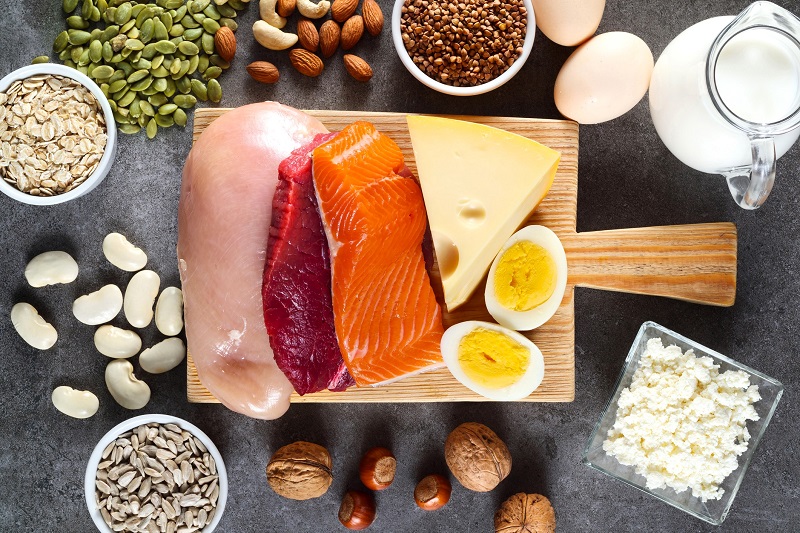Struggling with overeating and maintaining a healthy eating routine? We understand the challenges many individuals encounter when it comes to managing their food intake. Overcoming overeating starts with understanding the underlying causes.
Understanding Your Struggles and Crafting a Plan to Stop Overeating
Explore our comprehensive list of common struggles and practical tips to stop overeating. These valuable insights are designed to help you stay on track and develop healthy eating habits. By being aware of your triggers and equipped with effective strategies, you can regain control over your eating habits.
These valuable tips can serve as a reliable resource whenever you experience the temptation to overeat, empowering you to make better choices and improve your overall well-being. Rest assured, our tips are grounded in scientific research, providing you with proven strategies to successfully navigate this challenge.
Don’t let overeating hinder your progress any longer – take the first step towards regaining control today!
1. Incorporate Fiber-Rich Foods into Your Diet

Studies have shown that foods high in fiber can help curb the urge to overeat. One reason: These foods take so long to eat—you have to chew fibrous foods much longer than a bar of chocolate to break them into digestible pieces.
Another: Like sponges, they expand in your stomach, making you feel full. One study, published in the journal Nutrition Reviews, found that by adding 14 grams of fiber to your diet, you can cut your calorie intake by 10 percent. Study participants who did this lost four pounds in fewer than four months—without even trying.
Consider adding more beans to your meals. Beans have both satisfying fiber and protein that, in one study published in the journal Obesity, made participants feel 31 percent fuller than those who didn’t have beans. The study looked at beans and other legumes, such as chickpeas, lentils and peas. Participants consumed only between three-quarters of a cup and one cup a day.
2. Slow Down and Practice Mindful Eating

You’ve heard it before, and a study from the Texas Christian University proves it: Taking your time to eat and chew can result in greater feelings of fullness before you even finish your meal.
In this study, people were asked to take small bites, chew thoroughly, pause and put their utensils down between bites. Those who did ate 58 to 88 fewer calories per meal than they did when they ate more quickly.
One behavior that slow eating triggered interested the researchers: When they ate at a leisurely pace, the participants drank more water, which may have also contributed to curbing their appetite.
Chopsticks also help you eat slower, say researchers at Cornell University’s Food & Brand Lab. This is especially important if you’re eating at a Chinese restaurant buffet where the temptation to not only load your plate but to go back for more is nearly irresistible. The delay can help you notice the feelings of fullness that don’t usually kick in till about 20 minutes after you’ve started eating.
3. Stay Hydrated to Avoid Confusing Thirst with Hunger

The signals your body sends when you need food and when you need fluids originate in the same part of the brain. Those signals can feel very similar: a rumble in your belly, a lack of energy and maybe a dull headache.
What’s more, when you’re even a little dehydrated, your liver holds on to its glycogen reserves, the essential source of energy for your body. That means you may crave food because your body isn’t getting the fuel it needs, even though just drinking water will get the fuel pumping through your system again.
A great way to stay hydrated is to make a habit of drinking water steadily throughout the day. If you get bored with plain water, you can add lemon and mint or substitute sodium-free seltzer. Check out these simple hacks to help you drink more water!
You can also cap off your meal with a low-fat cappuccino. A 2014 study, published in the International Journal of Obesity, reported that people who had a roughly 8-16-ounce “foamy drink” after meals weren’t tempted to eat more. Specifically, they had no “appetite for a snack,” the researchers said. Ask for extra foam! Just be sure to lay off the sugary extras like whipped cream and syrup.
4. Manage Stress Through Outdoor Activities and Yoga

All of us experience stress from time to time. When we’re under persistent stress, our bodies produce a hormone called cortisol. According to Harvard Health, cortisol increases our appetites and our desire to eat. What’s more, research shows that people under stress are more likely to eat foods high in fat, sugar or both.
Spending 20 minutes in nature lowers your cortisol levels, according to a study, published in the journal Frontiers in Psychology. Another study, published in the Indian Journal of Psychiatry, found that yoga also decreases cortisol levels.
Try incorporating a home yoga workout and some meditation into your daily routine. Make time to appreciate the natural world and to practice mindfulness each day and it will reduce your urge for unnecessary eating.
5. Get Adequate Sleep for Balanced Appetite Hormones

Many of the same causes of stress keep us awake at night. When we get less than seven hours of sleep, the two hormones that manage our appetite are disrupted.
Ghrelin signals to your brain that you need food so you know when it’s time to eat. Leptin lets your brain know you are full.
Lack of sleep increases the production of ghrelin and reduces the leptin in your body, leading to overeating. Worse, those excess calories often come primarily from carbohydrate-rich foods, according to research, published in Clinical Nutritional and Metabolism Care.
Find out the top reasons you have trouble falling asleep, then get some smart sleep strategies for a better slumber!
6. Include More Protein and Healthy Fats in Your Diet

Protein not only curbs your appetite, it can help change your body composition (in a good way), according to a review study in the Annual Review of Nutrition. The researchers point out that people feel more satisfied on smaller amounts of protein than they do when eating carbohydrates.
Your body also expends more energy burning and storing protein calories than it does with carbs. Eating protein also helps you maintain lean muscle while losing weight. Those muscles also help burn more calories.
All fats are not created equal, though they’re equally satisfying. A study in Nutrition Journal found that people who consumed half an avocado at lunch time were 40 percent less likely to want to eat for several hours afterwards. Avocados, like nuts and olive oil, contain heart-healthy monounsaturated fats.
Give yourself a boost of energy to get through the day by including plenty of PowerFuels in your healthy meals and snacks. These foods are high in protein and healthy fats, so they keep you going strong and feeling full for hours after you’ve finished eating.
Smart choices include nuts and nut butters, non-fat yogurt and Nutrisystem Shake Mix. Consider signing up for a healthy food meal delivery service like Nutrisystem to get a protein-packed weight loss plan delivered directly to your door.
7. Keep Smart Snacks on Hand to Beat Temptation

Sometimes we eat just because we see food that we like. The packaging shows off enticing photos and we begin to imagine how good it tastes. Then we find ourselves in an inner struggle to resist the urge to eat, even though we know we’re not hungry.
Keeping smart options on hand will help you beat temptation before it starts. Stock up on a wide variety of snacks from Nutrisystem. From savory favorites such as White Cheddar Popcorn, to sweet treats like our Chocolate Brownie Sundae and Chocolate Chip Cookies, you’ll find options to satisfy any craving.
Snacks from Nutrisystem are made with the guidance of our team of dietitians and crafted by our chefs to ensure they fit into your weight loss plan, so you can enjoy them when temptation strikes and still stay on track to your weight loss goals.
8. Use Smaller Plates to Control Portion Sizes

For many of us, overeating is not caused by eating too often but by consuming too much food at one time. When our appetites are satisfied, our digestive tract sends a signal to the brain to tell us we can stop eating.
However, there is a lag between the time that we’ve had enough food and when our brain receives the signal. Even more challenging, for some people that message isn’t as strong as it is for others, say the experts at Harvard University School of Medicine.
Larger plates both in restaurants and at home have changed how we look at portion sizes, says Brian Wansink, PhD, a Cornell University researcher and author of Mindless Eating: Why We Eat More Than We Think. In his studies of eating behavior, people feel just as full when they clean a 9.5 inch plate as they do when they finish a meal on a 12-inch plate and yet they eat about 22 percent less. It’s a mind trick that you can use to prevent mindless overeating.
Nutrisystem weight loss plans are designed to help you learn and understand healthy portion sizes. Nutrisystem meals are perfectly portioned for weight loss. When you’re making meals for yourself, you’ll follow our Flex meal guidelines and refer to our handy Grocery Guide so you never have to guess the right portion.
9. Start Your Meal with Soup or Salad

Multiple studies by Penn State researcher Barbara Rolls, PhD, author of Volumetrics: Feel Full on Fewer Calories, find that eating foods with a high water content—soups, salads, dishes with added vegetables, smoothies—can help you eat less.
In several of her studies, people who “ate” their water ate less at the meal and were still feeling satisfied hours later. Top your whole wheat pasta with a sauce made with a rainbow of veggies and add tomatoes and lettuce to all your sandwiches.
10. Engage in Activities that Make You Feel Good

Eating out of boredom is a common problem many of us struggle with. Too often we reach for junk food to add a little treat to an otherwise dull day, according to a study, published in Frontiers in Psychology.
Think you’re going to overdo it? Grab your needlework, re-read your favorite novel, putter in the garden, strum your guitar—whatever makes you feel great. Any of these options should help you avoid the boredom to stop eating so much.
Failing that, spend some time imagining some of your favorite things. Just imagining something pleasant as vividly as you can may help you beat food cravings that can lead you to overeat, says a 2011 study by researchers at McGill University in Canada. They found that even when they tempted participants with images of food—proven to make us hungry, something all food retailers know—those who thought about their favorite activities were able to fight the feeling.
The post Overcoming Overeating: Common Causes and Tips for Success appeared first on The Leaf.
from The Leaf https://leaf.nutrisystem.com/10-easy-ways-to-stop-eating-so-much/
Post a Comment